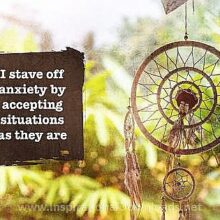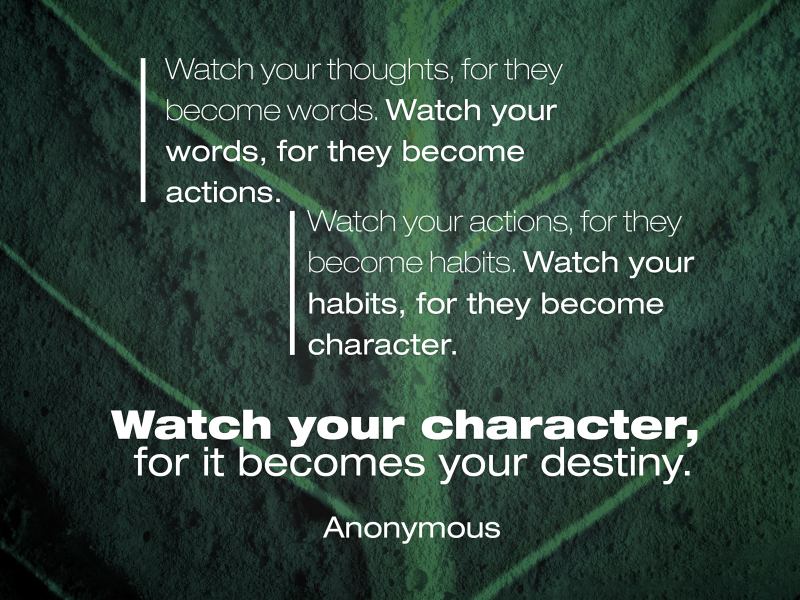The Impact of Lifestyle Choices on Short-Term Memory Loss
Short-term memory loss can be a serious issue, and it’s not always easy to determine the exact cause.

>> More about this image at Inspirational Posters
Although several medical conditions can affect memory, there are other things that also influence the brain. Lifestyle choices can have a big impact on short-term memory loss.
Consider these common causes of short-term memory loss:
1. Anxiety and stress. When you’re worried all of the time, it’s harder to remember things. Both anxiety and stress can adversely affect your short-term memory.
- Research studies show that stress can increase cortisol levels in the body, and this can affect brain function, including memory.
- When you’re focused on things that cause you stress or anxiety, it’s more difficult to remember important tasks, names, or events. Your mind isn’t designed for multi-tasking, so these things can affect your memory.
- Exercise and relaxation techniques help reduce stress and anxiety. Try meditation, yoga, going for a walk in natural surroundings, or participating in sports on a regular basis.
[wpgfxm_contentbox width=”90%” bg_color=”#F1F8FB” b_color=”#C1D2D9″ style=”solid” top=”1px” right=”none” bottom=”1px” left=”none” radius=”0px”]
To Accept Conditions As They Exist,
Or Accept The Responsibility For Changing Them.”
– by Dr. Denis Waitley –
More about this quote at
Inspirational Downloads
[/wpgfxm_contentbox]
2. Not sleeping enough. Sleep is a vital component of brain function. The lack of sleep can have serious consequences for the body and mind.
- When you don’t get enough sleep, it’s harder to remember things or pay attention during the day. In addition, your cells can’t restore themselves and heal. This affects your brain and other parts of the body.
- Experts recommend getting at least seven or more hours of sleep per night.
3. Poor diet that lacks essential vitamins and minerals. Your brain needs food just like your body. A poor diet can affect your short-term memory. If you’re not eating enough or only eating junk food, your short-term memory suffers.
- Researchers have found that vitamin B6 and others are important for the brain.
- A high-fat diet with fast food, chips, and fried food can hurt the brain.
- Switching to a nutrient-rich diet with whole foods, fruits, and vegetables can help turn diet-induced memory loss around.

Ad by www.Faithraiser.net
4. Smoking and alcohol. Even a small amount of nicotine can affect the brain and body. Research shows that smoking can affect brain cells. Cigarettes and cigars affect the lungs and heart, so less oxygen gets to the brain.
- Alcohol can also affect short-term memory and judgment.
- Try to avoid smoking and alcohol to enhance your memory.
5. Loud music. You’ve probably heard that listening to loud music can damage the ears and hearing, but are you aware of its impact on short-term memory?
- Several studies have found that constantly listening to loud music can interfere with how the brain recognizes normal sounds. The normal brain processes are interrupted, so it’s harder to remember things.
- Loud music can actually damage the nerves in the brain.
- This doesn’t mean you should stop listening to music. In fact, some classical music helps boost brain activity. The key is to avoid playing any type of music extremely loudly.
- If your friends or family members are complaining about the noise, this means it’s time to turn it down.

Ad by www.Faithraiser.net
6. Not getting enough vitamin D. Vitamin D is responsible for multiple body functions, and memory is one of the ones that are affected. The lack of vitamin D in the body can lead to cognitive or thinking issues.
- To increase your vitamin D levels, spend more time in the sunlight, eat vitamin D rich foods, or take supplements with vitamin D.
If you suffer from short-term memory loss, see your doctor to determine if a medical reason is behind it. In any case, there may be lifestyle changes you can make to sharpen your memory.
Featured Personal Development Ebook:
On the other end of the spectrum, happiness, gratefulness, joy, relief, comfort and contentment are also emotional pieces we feel at times as we go throughout our lives. True happiness and emotional freedom is what all mankind strives for!
Mindfulness and meditation in general can help you handle your emotions, achieve lower stress levels, feel happier, and enjoy peace and satisfaction with your life.
Psychologists, counselors, and therapists the world over have recognized the power that mindfulness can bring to our lives if we choose it.
In this guide, you will learn how to reap the benefits of practicing mindfulness.
You will receive the file/s below (in one ZIP file) for your personal use:
+ MAIN EBOOK:
Discover the Power of Mindfulness Meditation (45-page PDF)
+ WORKSHEET:
Discover the Power of Mindfulness Meditation Workbook (5-page PDF)
+ CHART:
The Mindful 20-30 Challenge Tracking Chart (8-page PDF)
+ BONUSES:
8 Lessons You Can Learn from Family Arguments (4-page PDF)
The-Fidgeting-Otter-Fable (4-page PDF)





